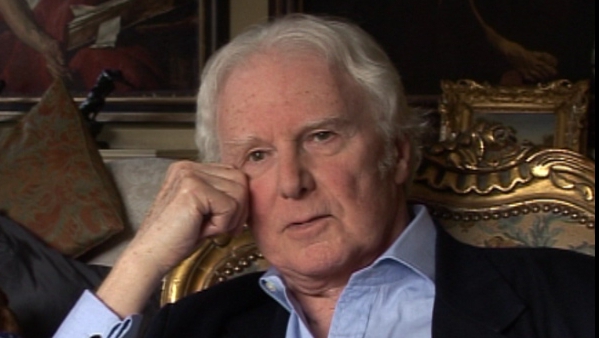NEXT STORY

Into the unknown: a holiday in Cadaqués
RELATED STORIES

NEXT STORY

Into the unknown: a holiday in Cadaqués
RELATED STORIES


|
Views | Duration | |
|---|---|---|---|
| 71. Standing up for Anthony Blunt | 380 | 04:11 | |
| 72. The real achievements of Anthony Blunt | 365 | 05:15 | |
| 73. Punished by the Establishment for supporting Anthony Blunt | 275 | 06:06 | |
| 74. Always the outsider | 231 | 03:28 | |
| 75. Into the unknown: a holiday in Cadaqués | 218 | 03:21 | |
| 76. Meeting Salvador Dalí over a slab of offal | 249 | 06:40 | |
| 77. Dinner with the Dalís | 229 | 05:49 | |
| 78. Salvador Dalí's eccentricities | 274 | 03:46 | |
| 79. Doing a Dalí | 196 | 04:44 | |
| 80. A relationship with Claudio Corvaja | 214 | 02:48 |


Salvation of a kind came with a note from Tina Brown, of whom I knew nothing, but she was the newly-appointed editor of a magazine called Tatler. And she was trying to breathe new life into it. It was completely dead. And had thought how amusing it would be for me to write a monthly column as their art critic. And she offered me ten columns a year at £100 a column, and a solid £1000 a year was the difference between penury and just managing. And I said, 'Yes'. And so it began.
My first errand for the Tatler was the Salvador Dalí exhibition of… I can’t remember, 1981 or something, at the Tate Gallery. And I went to the Tate, to the press view, and the custom was that you signed in and then they gave you a catalogue and then you went and looked at the exhibition. So I signed in and then I asked for a catalogue and they said, oh, you’re not important enough. You’re not important enough, Tatler’s of no standing, and so you can’t have a free catalogue. You will have a catalogue if you pay for it. So I paid for my catalogue and went in, and the place was absolutely crammed with television and radio and other journalists, all busy talking to each other and being interviewed and so on. And I listened to some of the people being interviewed, and I thought to myself, I’m the only person here who’s actually known Salvador Dalí, and I’m the one person who everybody is shearing away from. And that was my, sort of, baptism. There was nobody there who would talk to me.
And that is why my autobiography is called Outsider. Again and again and again, I’m always the outsider. And never was I made to feel an outsider more than on that day. You’re not important enough for us to give you a shoddy catalogue. No. You’re not important enough to ask anything. Nobody thought of saying, do you by any chance know… have you come across him? Grrrr.
[Q] Did that toughen you up quite a bit?
I think it put some kind of steel into me again, you know. Bad experiences always reinforce you. They don’t knock you down, they gave you more strength.
Born in England, Brian Sewell (1931-2015) was considered to be one of Britain’s most prominent and outspoken art critics. He was educated at the Courtauld Institute of Art and subsequently became an art critic for the London Evening Standard; he received numerous awards for his work in journalism. Sewell also presented several television documentaries, including an arts travelogue called The Naked Pilgrim in 2003. He talked candidly about the prejudice he endured because of his sexuality.
Title: Always the outsider
Listeners: Christopher Sykes
Christopher Sykes is an independent documentary producer who has made a number of films about science and scientists for BBC TV, Channel Four, and PBS.
Tags: Tatler, Tate Gallery, Outsider: Almost Always, Never Quite, Salvador Dalí, Tina Brown, Salvador Domingo Felipe Jacinto Dalí i Domènech
Duration: 3 minutes, 28 seconds
Date story recorded: April 2013
Date story went live: 04 July 2013